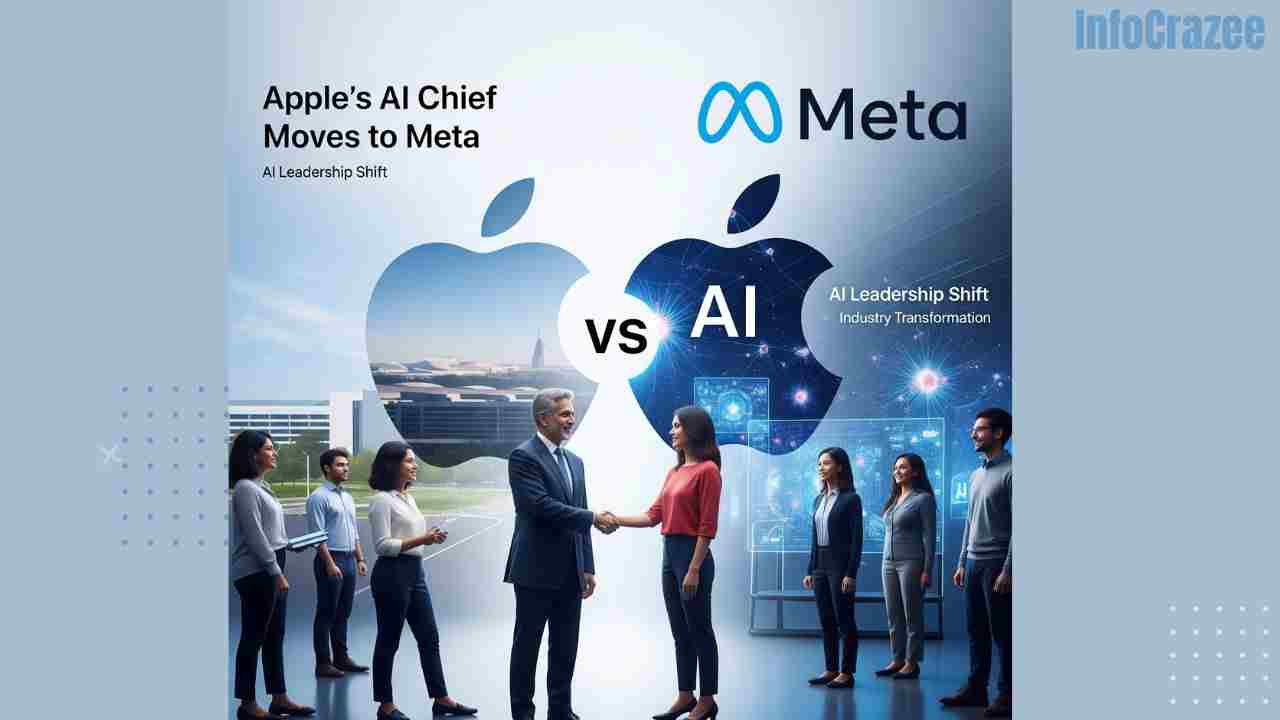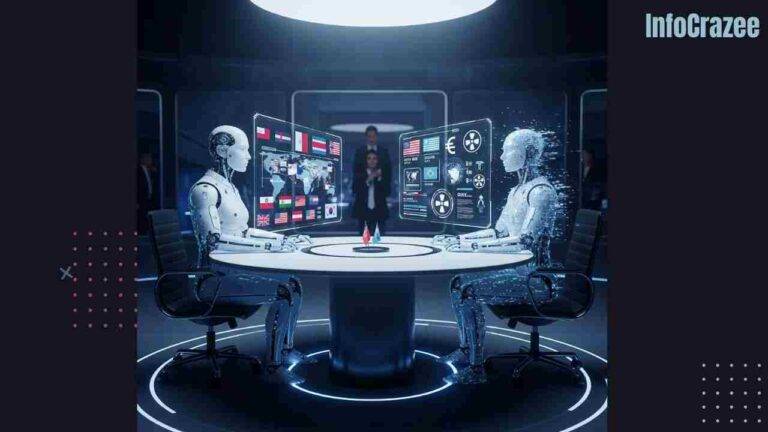Apple’s AI Chief Jumps to Meta: What’s the Deal?
Hey, have you heard the latest tech buzz? Apple’s top AI brain, Ruoming Pang, just made a big move to Meta’s new Superintelligence Labs. This news, dropped on July 8, 2025, is shaking things up in the tech world, and it’s a big deal for anyone who cares about AI, smartphones, or where the industry’s headed. Imagine a star player switching teams mid-season—this could change the game for both Apple and Meta. Let’s break it down in a way that’s easy to follow and figure out what it means for you.
Who’s Ruoming Pang, and Why’s This a Big Deal?
Ruoming Pang was the mastermind behind Apple’s AI foundation models—the tech that powers cool features like email summaries, Genmoji, and the revamped Siri in Apple Intelligence. He led a team of about 100 engineers, but now he’s packing his bags for Meta’s shiny new AI division. Why? Meta’s offering him a jaw-dropping pay package, reportedly worth tens of millions a year, to help build “superintelligent” AI that could outsmart humans.
This isn’t just a job switch—it’s a sign of the heated AI talent race. Think of it like a high-stakes chess game where tech giants are competing for the best minds to shape the future of AI.
What’s Meta Up To?
Meta’s CEO, Mark Zuckerberg, is going all-in on AI. He’s personally recruiting top talent, even hosting dinners at his homes in Silicon Valley and Lake Tahoe to woo engineers like Pang. Meta’s new Superintelligence Labs, led by Alexandr Wang (a 28-year-old former CEO of Scale AI), is aiming to create AI that can think, plan, and solve problems better than humans. It’s a bold move to catch up with rivals like OpenAI and Google.
Here’s what Meta’s Superintelligence Labs is all about:
- Big Goals: Building AI that’s smarter than humans, capable of handling complex tasks like reasoning and planning.
- Star-Studded Team: Alongside Pang, Meta’s hired big names like Yuanzhi Li from OpenAI, Anton Bakhtin from Anthropic, and Nat Friedman, ex-CEO of GitHub.
- Big Money: Meta’s throwing around massive offers—some say up to $200 million for Pang alone—to grab the best talent.
- New Focus: Unlike Meta’s earlier open-source AI (like Llama), this lab is working on proprietary AI to compete head-on with industry leaders.
Why’s Apple Losing Ground?
Apple’s been playing catch-up in the AI race, and losing Pang is a tough blow. His team was key to Apple Intelligence, but reports say morale’s been shaky. Apple’s even been thinking about using third-party AI models from OpenAI or Anthropic for Siri’s next upgrade, which hasn’t helped team spirit. Plus, Pang’s deputy, Tom Gunter, left last month, and more engineers might follow.
Imagine you’re on a team building the next big iPhone feature, but the boss keeps looking at other companies’ tech. It’d be frustrating, right? That’s what’s been happening at Apple’s AI division, and it’s pushing talent like Pang out the door.
What Does This Mean for You?
If you’re an Apple user, you might be wondering how this affects your iPhone or Mac. Here’s the scoop:
- Siri’s Future: Apple’s still working on a smarter Siri, but Pang’s exit could slow things down. They might rely more on partners like OpenAI, which could mean faster updates but less “Apple-ness” in the tech.
- Apple Intelligence Features: Features like Genmoji or email summaries might not see big leaps forward as quickly as hoped, especially if more engineers leave.
- Meta’s AI Push: If Meta’s Superintelligence Labs succeeds, you could see smarter AI in apps like WhatsApp or Instagram, or even new AI-powered tools that change how you use social media.
For businesses or developers, this shift signals Meta’s doubling down on AI innovation. If you’re building apps or services, Meta’s new AI tools could offer exciting opportunities down the line, while Apple might take longer to roll out developer-friendly AI features.
What’s Next for Apple and Meta?
Apple’s not sitting still. They’ve tapped Zhifeng Chen to lead the AI foundation models team, with a new structure splitting responsibilities among senior engineers like Chong Wang and Zirui Wang. But with pressure to compete with Google and OpenAI, Apple’s got to act fast to keep its AI game strong.
Meanwhile, Meta’s building a dream team, but it’s not all smooth sailing. Managing a group of superstar researchers—each used to calling the shots—could be like herding cats. Zuckerberg’s got to make sure this team gels to deliver on the promise of Llama 5, Meta’s next big AI model, expected in mid-2026.
The Bigger Picture
This move is like a plot twist in the tech world’s AI saga. For Apple fans, it’s a reminder that even giants can stumble in the fast-moving AI race. For Meta, it’s a chance to leap ahead, but only if they can turn their all-star team into game-changing tech. As a user, keep an eye on how Apple’s iOS updates evolve and whether Meta’s apps start feeling smarter.






